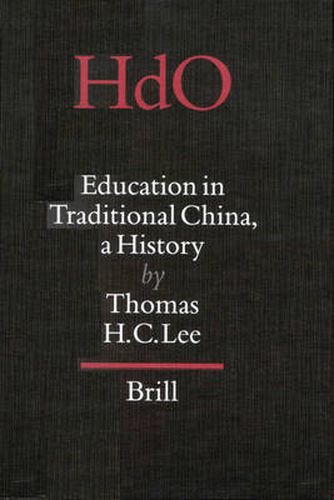Readings Newsletter
Become a Readings Member to make your shopping experience even easier.
Sign in or sign up for free!
You’re not far away from qualifying for FREE standard shipping within Australia
You’ve qualified for FREE standard shipping within Australia
The cart is loading…






This is the first comprehensive study in English on the social, institutional and intellectual aspects of traditional Chinese education. The book introduces the Confucian ideal of ‘studying for one’s own sake’, but argues that various intellectual traditions combined to create China’s educational legacy. The book studies the development of schools and the examination system, the interaction between state, society and education, and the vicissitudes of the private academies. It examines family education, life of intellectuals, and the conventions of intellectual discourse. It also discusses the formation of the tradition of classical learning, and presents the first detailed account of student movements in traditional China, with an extensive bibliography. While a general survey, this book includes various new ideas and inquiries. It concludes with a critical evaluation of China’s rich educational experiences.
$9.00 standard shipping within Australia
FREE standard shipping within Australia for orders over $100.00
Express & International shipping calculated at checkout
Stock availability can be subject to change without notice. We recommend calling the shop or contacting our online team to check availability of low stock items. Please see our Shopping Online page for more details.
This is the first comprehensive study in English on the social, institutional and intellectual aspects of traditional Chinese education. The book introduces the Confucian ideal of ‘studying for one’s own sake’, but argues that various intellectual traditions combined to create China’s educational legacy. The book studies the development of schools and the examination system, the interaction between state, society and education, and the vicissitudes of the private academies. It examines family education, life of intellectuals, and the conventions of intellectual discourse. It also discusses the formation of the tradition of classical learning, and presents the first detailed account of student movements in traditional China, with an extensive bibliography. While a general survey, this book includes various new ideas and inquiries. It concludes with a critical evaluation of China’s rich educational experiences.